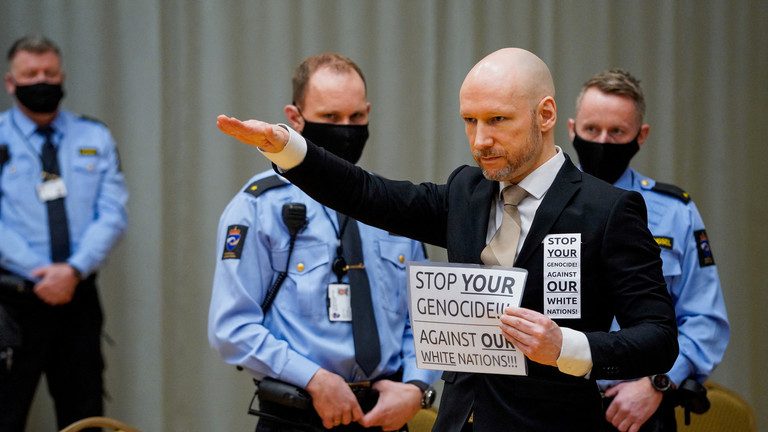World
Mass murderer sues Norway over “extreme” punishment

For his 2011 murder of 77 people, Anders Behring Breivik is currently receiving the maximum term in Norway—21 years.
According to the Norwegian mass murderer Anders Behring Breivik’s attorney, Oeystein Storrvik, the state has been sued for violating Breivik’s human rights by putting him in “extreme” isolation.
He filed a lawsuit against the state, according to Storrvik, because he has spent the last 11 years in complete isolation and has had no interaction with anyone save his guards.
According to Norwegian law, Breivik is currently serving a 21-year sentence for the biggest peacetime atrocity in the nation’s history, which resulted in the death of 77 people in a mass shooting and vehicle bombing in July 2011. If after that time he is still seen to be a threat, judges may decide to extend his sentence.
Breivik was transferred to Ringerike jail last year after completing the first nine years of his sentence in Skien prison and allegedly growing bored with his surroundings. There, he continues to be held in maximum security conditions, including, according to his counsel, solitary confinement.
We had hoped for better circumstances and more opportunities for him to socialise, regretted Storrvik.
Breivik was imprisoned in a three-room cell, and in 2017, an appeals court overruled a previous court’s ruling that his rights were infringed. Due to the threat he allegedly posed, a court in Oslo had determined in 2016 that separating him from other convicts constituted “inhuman or degrading treatment or punishment.”
At the time, the government claimed that Breivik “still wants to inspire others” and that he must be isolated from other convicts and society. In contrast to the US, where solitary cells are less than a quarter the size of his own three-cell suite, he has rather comfortable living arrangements.
In addition to being allowed to pursue a political science degree, the convicted terrorist is also allowed to play video games, use a computer (without internet), work out with gym equipment, read books, and watch movies. Additionally, he is permitted to send and receive letters, albeit many of them are edited if prison officials believe they might instigate hate crimes.
Breivik petitioned for parole last year, but the court denied him because it believed he still represented a threat to society. He attempted to defend his actions in shooting down dozens of mostly teenage victims at a Labour Party youth camp on the island of Utoya, claiming most of those affected were not children but people in “leadership positions,” but the judge ruled he lacked empathy and compassion for his victims and had not changed since committing the shocking murders.
According to his attorney, the Oslo District Court is scheduled to hear Breivik’s most recent case in the spring of 2019.
